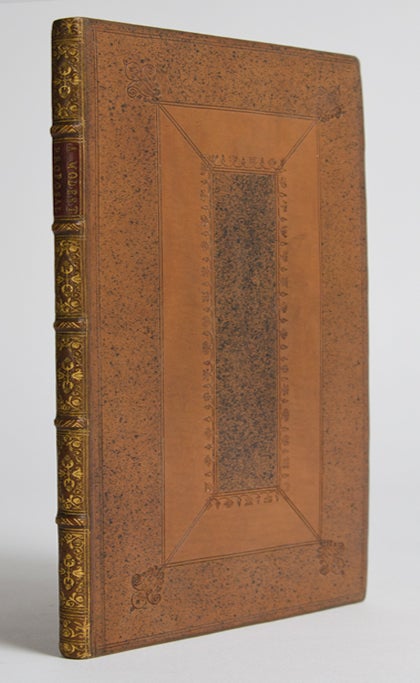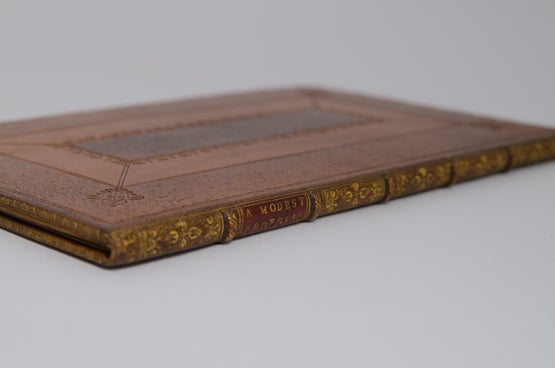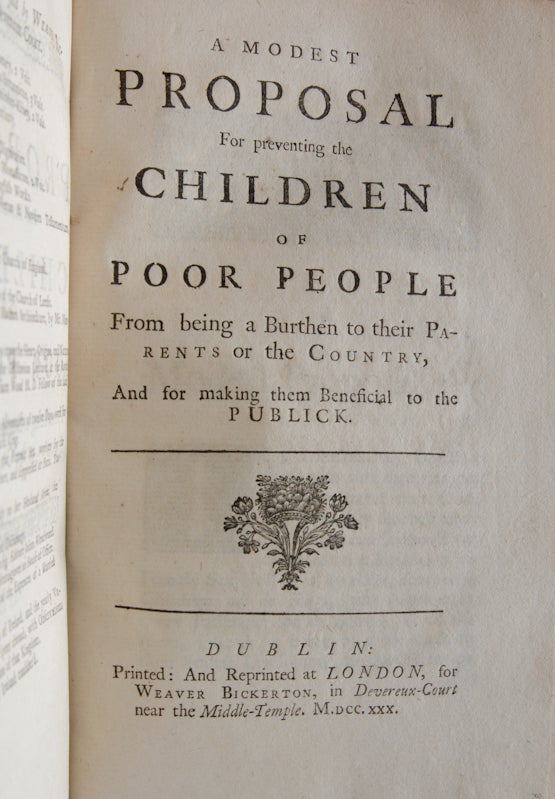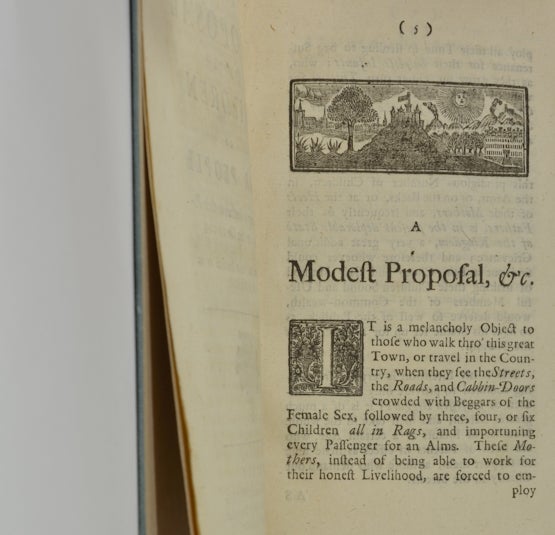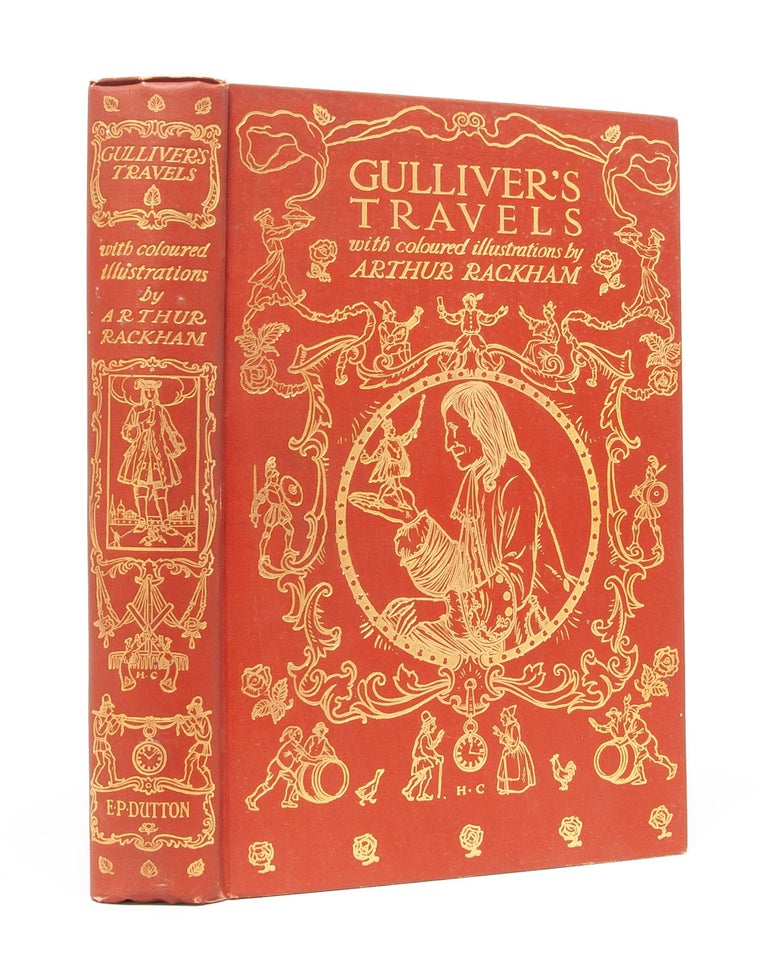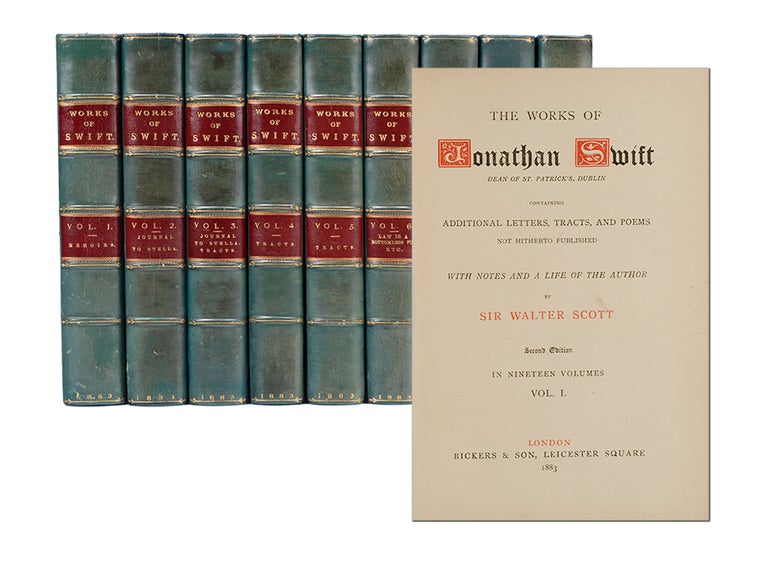A Modest Proposal for preventing the children of poor people from being a burthen to their parents or the country, and for making them beneficial to the publick.
Dublin [London]: Weaver Bickerton, 1730.
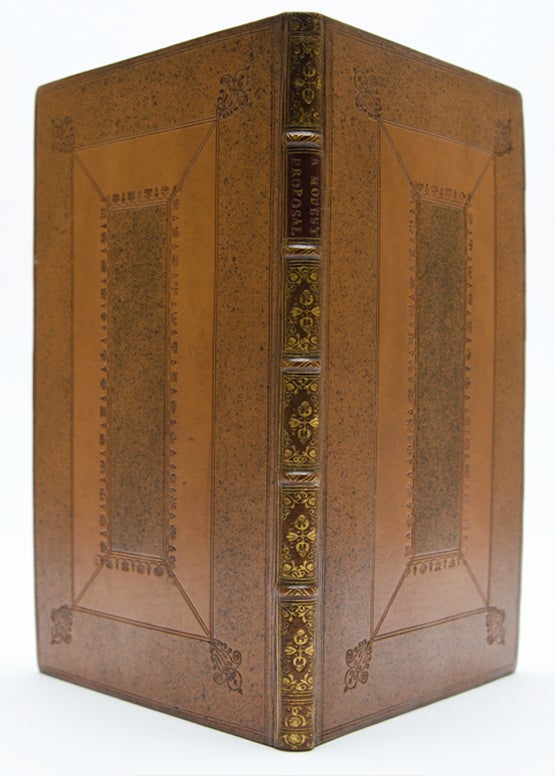

A Modest Proposal for preventing the children of poor people from being a burthen to their parents or the country, and for making them beneficial to the publick.
Dublin [London]: Weaver Bickerton, 1730. Third edition. A Fine copy of an exceptionally rare book. Bound in full calf with a Cambridge panel. An extremely pleasing modern binding. Internal contents also Fine. Octavo (pages 195 x 123 mm): complete with half-title and advertisement (on the same leaf), title page and pages 5 - 23, [24]. With just three examples found in the modern auction record (50+ years), and with no copies of the first or second editions found during that time, the work is decidedly rare.
Perhaps the greatest work of satire in the English language, by one of the medium’s master practitioners. The techniques and style Swift uses in his pamphlet are now so familiar to us as to seem almost hackneyed. They appear everywhere – from Daily Show monologues to the pages of The New Yorker. Indeed, the term “a modest proposal” now delineates an entire genre of humor. A Modest Proposal had, in fact, many targets - not just the English attitude towards the Irish people - but also a general tenor among intellectuals of the time to propose pie in the sky solutions to complex problems. Indeed, in "Swift's Modest Proposal: The Biography of an Early Georgian Pamphlet", George Wittkowsky argues that the essay is “a burlesque of projects concerning the poor,” which Swift uses to lampoon such ideas. Swift’s style manages to employ many now familiar satiric tropes, including an appeal to the authority of experts, and the use of apparently plausible but actually quite ridiculous facts and figures.
Swift had been more or less sent to Ireland in exile when he wrote the pamphlet. He had fallen out with the Queen, and the Tory government he had supported and served in had been replaced by a Whig one. Once in Ireland, however, Swift turned his considerable intellect to grappling with Irish social and political problems, and it is from this turn that A Modest Proposal emerged. Swift's caustic solution was to suggest selling poor children as food: "I have been assured by a very knowing American of my acquaintance in London, that a young healthy child well nursed is at a year old a most delicious, nourishing, and wholesome food, whether stewed, roasted, baked, or boiled; and I make no doubt that it will equally serve in a fricassee or a ragout." (Item #1543)

